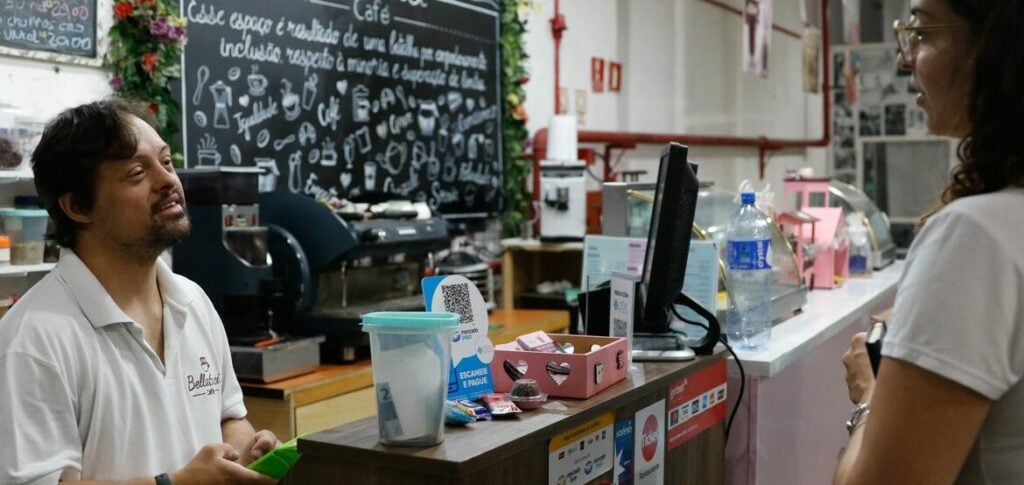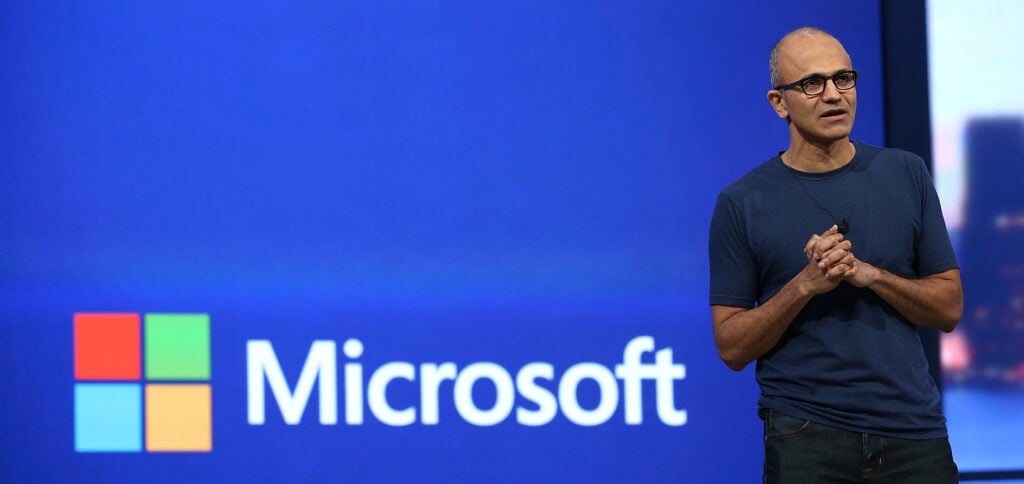This Tuesday (21st) is World Syndrome Day. Down. The date has been recognized by the United Nations (UN) since 2012 and refers to the three chromosomes in pair 21, which characterize the genetic condition.
ADVERTISING
“My dream was to open a restaurant, but my sister and mother said that a restaurant was too difficult and we decided to open a cafe. Coffee changed my life. I stayed at home a lot, watched a lot of television. Now I get home at 7pm, I work from Monday to Saturday”, said Jessica.
The taste for cooking came from observing her own mother and became a profession with the Gastronomy Technician course at the National Commercial Apprenticeship Service (Senac). Already graduated, Jéssica was sure that she wanted to have a business in the food sector. On social media, Jéssica talks about her routine at the cafe.
“I liked watching my mother working with the pans, the knives and I started helping to set the table, make juice, dessert, salad and then I fell in love”, he said. At the café, Jéssica serves sweets, pies and coffees. “I make pot cake, brigadeiro, honey bread, crepe. We cook every day, we sell everything fresh and we work together, my whole family helps me with the coffee.”
ADVERTISING

There are other people working on site with Down, including Philippe Tavares, 31 years old, the barista. “He was my friend and he’s a barista here. And now, my boyfriend”, revealed Jéssica.
The young man took a barista and waiter course. “I love being here. I'm a barista and I make coffees, cappuccino, mocha coffee. I'm a show barista. I met Jéssica at Apae, when I was 6 years old. Now, she is my girlfriend”, he said proudly.
Confidence
Jéssica's mother, Ivânia Della Bella da Silva, is one of the project's facilitators and is with the cafe's workers every day. She does the training and accompanies them, in addition to overcoming setbacks and mistrust from clients.
ADVERTISING
“The obstacles we encounter, such as giving people the confidence they should have in hiring the service, is difficult. It’s a work of persistence, but it’s true.”
In addition to serving coffee on site, the café also hosts business events, offering coffee breaks and cocktails.
“Since she was little, Jéssica showed signs that she wanted to work with food. She took a gastronomy technique course and started to really enjoy it, looking for recipes, so she wanted to open a restaurant. We suggested opening a cafe and she was super happy,” she said.
ADVERTISING
Jéssica's sister, Priscila, together with her husband, Douglas Batetucci, invested in the space. With the pandemic, the Café changed location. Now, it operates attached to the Como Assim?! Restaurant, whose owner, a social investor, supported Jéssica's social impact venture. “The whole family helps and we don’t want to stop, we want to see the results, which are really cool.”
Ivânia advises fathers and mothers to encourage and encourage children with Down syndrome. Her expectation is that, in this way, society will become more welcoming and learn to live better with different people.
“Our young children are paving the way for these babies [people with Down] with a range of possibilities. I wish mothers encourage their children and let them be whatever they want because they can, you just have to trust. If he likes something, work on it and he will succeed and believe in it. I have lived experience and I hope that one day society stops talking about inclusion and just talks about coexistence, that we know how to live with those who are different”, argued Ivânia.
ADVERTISING
Barriers
Jéssica's venture is an example of the capacity of people with Down. However, entering the job market still faces difficulties, explained psychologist Paula Cardoso Tedeschi, who works at the Down Syndrome Foundation, based in Campinas (SP).
“The barriers are some stigmas and prejudices, an overinfantilization of people. So there are physical, attitudinal and communicational barriers that make inclusion difficult. These are the prejudices of imagining that [the person with Down] can’t do it and doesn’t have the capacity”, he said.
For the psychologist, changes in the attitudes of colleagues and organizational leaders can improve the inclusion of people with disabilities. Down in the business market.
“We need to change this very infantilized view, of imagining that the co-worker is a child, of not viewing him as an adult who has his rights and duties. He is a person who is there to do a type of service and the colleague or leader's attitude must be to support him as well as all employees. There are issues where adaptations are necessary, but these issues do not prevent this person from being treated as a worker, who has schedules, duties and rights, just like others,” he stated.
The Syndrome Foundation Down Since 1999, it has been offering the Training and Inclusion in the Labor Market Service. https://www.fsdown.org.br/o-que-fazemos/formacao-e-inclusao-no-mercado-de-trabalho/ The course consists of four programs: Initiation to Work, Practical Professional Experience, CLT Contracting and Labor Partner.
“This service is offered to the population with Down and intellectual disability, through the Unified Health Service (SUS). Families can look for health centers, which they forward to the foundation”, explains the psychologist.
Legislation
The hiring of this public is provided for in the Law of Quotas for People with Disabilities (8.213/91). The legislation determines that companies with 100 and 200 employees are obliged to fill 2% of their positions with people with disabilities. Companies with 201 to 500 are 3%; from 501 to 1000, it is 4% and from 1001 onwards it is 5%. The fine for non-compliance can reach more than R$200.
The Statute of Persons with Disabilities prohibits restrictions on the work of people with disabilities and any discrimination based on their condition, including in the stages of recruitment, selection, hiring, admission, admission and periodic examinations, permanence in employment, professional advancement and rehabilitation. professional, as well as full aptitude requirements.
In the psychologist's opinion, it is necessary for society and companies to be more inclusive so that people with Down have opportunities.
“From architectural issues for adaptation and locomotion to information issues for changes in attitudinal barriers. Companies also need to be more willing to learn, to have experiences, so that we have more possibilities for inclusion, including career plans in companies. A series of changes are needed for truly inclusive work”, stated Paula.
Inclusion
In the view of the NGO founder Our View, Thaissa Alvarenga, the socialization and inclusion of these individuals must be worked on from the family cradle until adulthood. And those who live with it should also learn more about people with Down.
“In Brazil, we have the Quota Law. However, for many people, this reality is still distant. People without disabilities must also be willing to learn so that diversity can be put into practice, so inclusion can actually be worked on in all environments. We must promote and guide. For inclusion to happen, we must mobilize the public and private sector, united with the third sector”, he assessed. Thaissa works to guarantee training, insertion in the job market, financial independence and autonomy of people with disabilities and is responsible for the content portal Chico and His Marias e T21 Network Space.
(With Brazil Agency)





